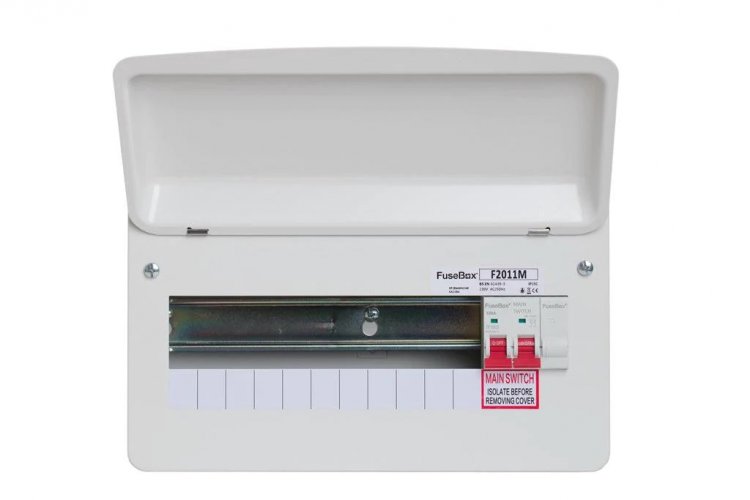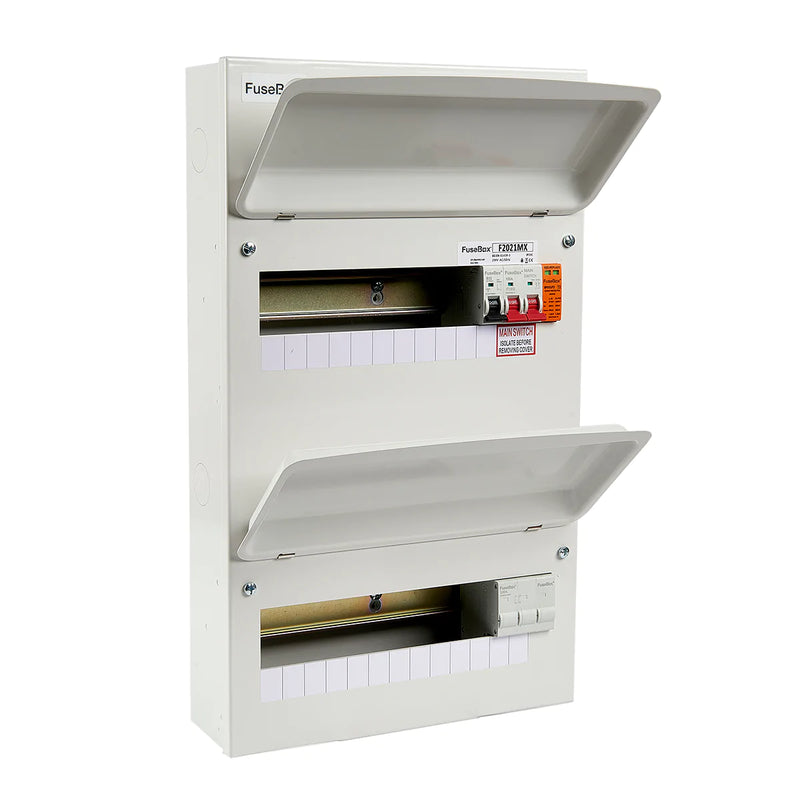The Function of Consumer Devices in Efficient Power Administration Equipment
Customer devices are indispensable to efficient power monitoring systems, offering as the main distribution factors for electric power within structures. The arrival of wise technologies has actually better boosted their functionality, allowing for real-time data monitoring and nuanced power intake evaluation.
Understanding Consumer Systems

Understanding the role of consumer devices begins with identifying their important function in securing electrical systems. By separating faults within particular circuits, consumer systems stop widespread blackouts and potential fire threats. This isolation is attained with using circuit breakers that trip or integrates that strike when a fault is detected, therefore removing the electrical flow to the influenced circuit.
Furthermore, consumer devices help with the well organized distribution of power, enhancing the performance of power usage. They permit the systematic administration of electric lots, which can be specifically crucial in industrial and business setups where need can fluctuate significantly. Appropriately conserved customer units contribute to the longevity of electrical systems and assist in minimizing downtime created by electrical failings, eventually supporting the seamless operation of energy-dependent centers.
Smart Technologies Integration
A key benefit of smart customer units is their capability to utilize advanced formulas and maker knowing for predictive analytics. This enables preemptive adjustments based on usage patterns, weather prediction, and other variables, substantially raising overall performance. Smart customer units help with need reaction programs, where power usage can be dynamically changed during top periods to maintain the grid and minimize expenses.
The assimilation of renewable resource sources, such as solar and wind, is also streamlined through clever customer systems. By smartly handling the intermittency of these sources, these systems guarantee a trustworthy and balanced power supply. Furthermore, smart customer devices enhance user involvement by providing in-depth insights and remote abilities with mobile applications, cultivating a much more positive strategy to power conservation and sustainability.
Tracking Energy Intake
Building on the capacities of wise innovations combination, keeping track of energy consumption comes to be an important emphasis within power monitoring systems. Reliable monitoring functions as the structure for recognizing energy inadequacies and implementing corrective measures. By leveraging sophisticated metering framework (AMI), real-time data on power use can be collected at granular levels, providing useful insights right into intake patterns and peak demand periods. This data-centric strategy enables visit this page both consumers and energy supervisors to make informed choices focused on decreasing waste and enhancing general efficiency.
Smart meters and Net of Things (IoT) devices play a pivotal role in this surveillance process. These devices can track power use in real-time, transferring information to central systems for evaluation. The collected information is after that processed through advanced formulas to discover anomalies, forecast future intake, and recommend optimization approaches. Additionally, cloud-based solutions offer scalable platforms for storing and examining huge datasets, assisting in remote tracking and control.
The integration of these modern technologies not only encourages consumers with thorough details concerning their power use however also supports utility companies in taking care of tons circulation extra successfully. Eventually, exact and continual surveillance is crucial for attaining energy performance, expense financial savings, and sustainability objectives within power administration systems.
Optimizing Appliance Usage

One effective method involves determining height and off-peak hours to shift energy-intensive activities, such as review washing or dishwashing, to times when power need is reduced. This not just lessens pressure on the grid but additionally takes advantage of on lower power tolls. Furthermore, incorporating artificial intelligence algorithms enables anticipating upkeep, making certain home appliances run at optimal effectiveness and lengthening their life expectancy.
Energy administration systems can additionally integrate user-specific preferences and actions to customize home appliance use schedules. Clever lighting systems can adjust illumination based on tenancy and all-natural light accessibility, while Cooling and heating systems can maintain comfort degrees without extreme power usage.
Supporting Sustainability
Promoting sustainability within energy monitoring systems includes not only enhancing performance yet additionally cultivating eco liable techniques. Consumer units are important to this process, as they offer real-time data and control mechanisms that make it possible for users to check and lower their energy intake. By leveraging innovative technologies, consumer units can determine energy-saving chances and promote the assimilation of renewable energy sources like solar and wind power.
One essential aspect of promoting sustainability is educating customers on the benefits of accountable energy use. Through thorough understandings given by customer units, individuals can make enlightened choices that decrease their carbon impact. These units can recommend optimum times for running high-energy home appliances based on grid demand and eco-friendly energy schedule, thus reducing dependence on fossil fuels.
Furthermore, customer systems sustain the adoption of smart grid innovations, which enhance the overall effectiveness and dependability of energy distribution. By making it possible for two-way communication between customers and utility service providers, these systems can dynamically adapt to energy demands, reducing waste and promoting making use of lasting energy methods.
Final Thought
Consumer units, as integral elements of energy administration systems, dramatically boost electrical safety and effectiveness within structures through circuit protection and smart technology assimilation. Real-time data monitoring and analysis facilitated by these systems enhance power usage and appliance usage. In addition, the consolidation of renewable resource resources promotes sustainable methods, adding to lowered general power intake and reduced carbon footprints. Subsequently, customer devices play an essential function in progressing both power performance and ecological sustainability.
Advancements in wise innovations have actually changed description the capabilities of power monitoring systems, particularly through the integration of wise customer units.Building on the capabilities of smart modern technologies assimilation, monitoring energy consumption becomes an important focus within energy administration systems.Effective appliance use optimization is a crucial part of energy management systems, aiming to boost performance and decrease unnecessary power usage.Consumer devices, as indispensable components of energy monitoring systems, substantially improve electrical security and effectiveness within structures via circuit defense and smart modern technology combination. Additionally, the unification of renewable energy sources advertises lasting methods, contributing to decreased general power consumption and reduced carbon impacts.